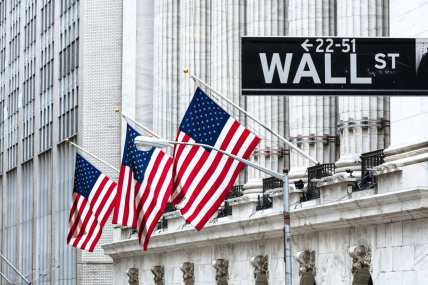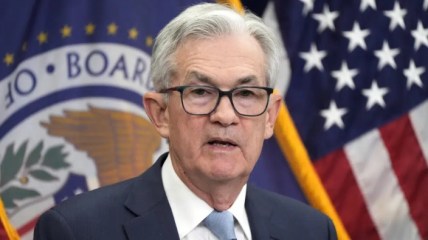What did the Biden-Harris administration do for Black people in 2022?
Since vowing to have the backs of Black Americans, President Biden has committed to prioritizing racial equity and delivered on several campaign promises.
When Joe Biden delivered his acceptance speech after defeating Donald Trump in the 2020 presidential contest, the then-president-elect intentionally thanked Black voters for his historic win, which led to the election of the nation’s oldest president as a result of historic voter turnout.
“In those moments when the campaign was at its lowest — the African-American community stood up for me,” said Biden. “You’ve always had my back, and I’ll have yours.”
Since making the vow on Nov. 7 to have the backs of Black Americans, President Biden has committed to prioritizing racial equity in his administration’s agenda and has delivered on several campaign promises. However, in some areas, like voting rights and federal police reform, Biden has been unable to deliver to the frustration of some Black voters.
Here is theGrio’s roundup of what President Biden has done for Black Americans in 2022:
Appointing the first Black female Supreme Court justice
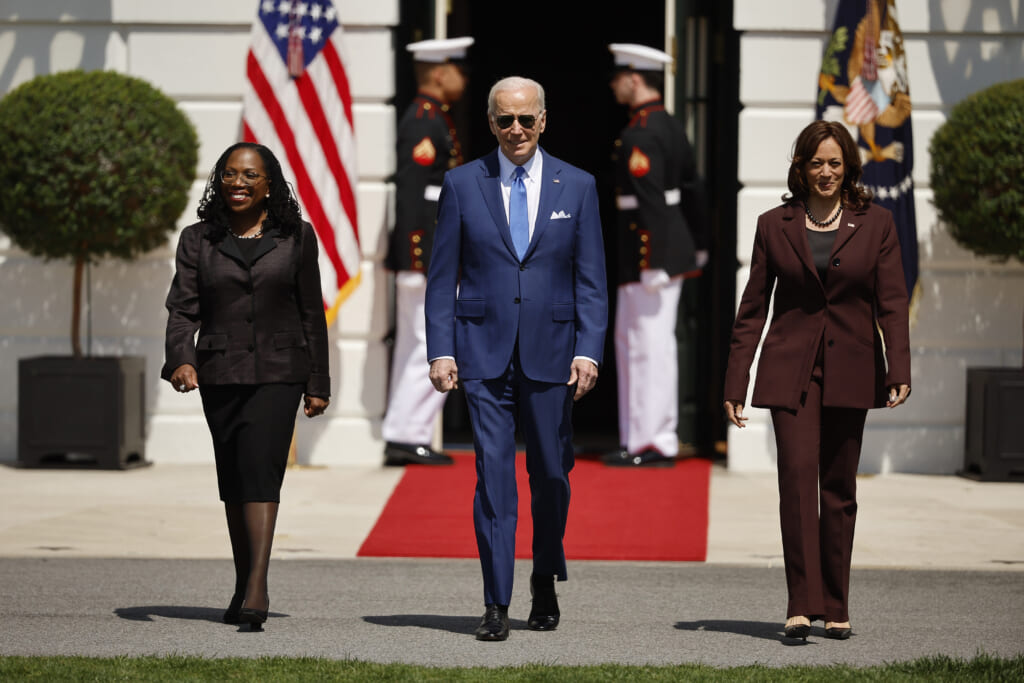
During a presidential debate in 2020, then-candidate Joe Biden promised that, if elected, he would appoint the nation’s first Black woman to the U.S. Supreme Court. When the opportunity came upon Justice Stephen Breyer’s announcement that he would retire at the end of the high court’s 2022 session, Biden quickly assembled a White House search committee to help him sift through a list of Black female judges. After announcing Ketanji Brown Jackson as his nominee, the Biden administration worked diligently to get enough U.S. senators to vote to confirm her nomination. During his remarks at a ceremony to commemorate Justice Jackson’s historic confirmation on the White House South Lawn, President Biden called it a day of “hope and progress.”
Record number of Black female judges
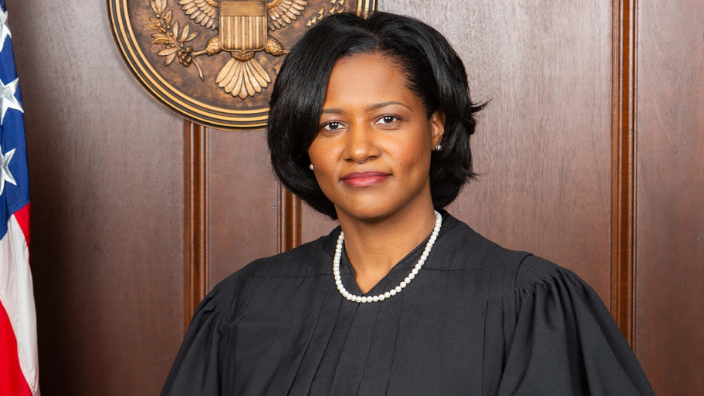
In addition to ensuring Black female representation on the high court, President Biden has also nominated and confirmed a record number of Black judges to the federal bench. Since taking office, Biden has had 11 Black women confirmed to the federal circuit courts, the most by any U.S. president. For example, in December, U.S. Magistrate Judge Dana Douglas of Louisiana made history as the first Black woman to serve on the conservative 5th U.S. Circuit Court of Appeals in Louisiana.
Prior to taking office, only eight Black women have ever served on the appellate courts. Per a White House official, of the 97 judges nominated and confirmed under the Biden administration, nearly half are women of color.
Marijuana pardons
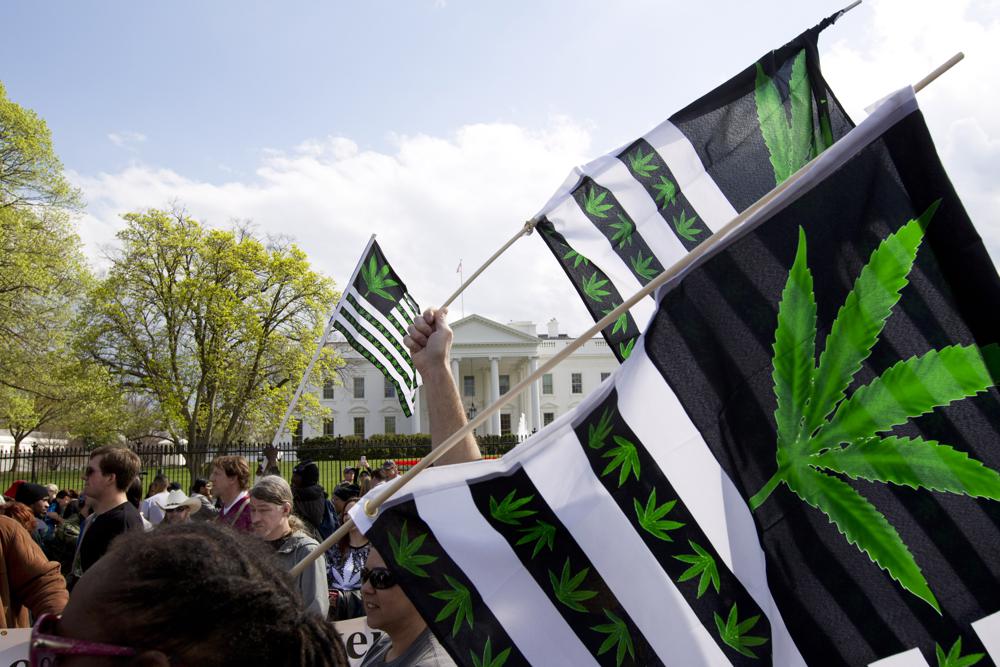
As a candidate, Joe Biden called for all marijuana convictions to be expunged. In October, President Biden partially fulfilled that campaign commitment when he announced presidential pardons for thousands of Americans convicted of “simple possession” of marijuana under federal law. In a statement announcing the move, just a month before the 2022 midterm elections, Biden said, “no one should be in jail just for using or possessing marijuana.” The president also called on the Department of Health and Human Services and the U.S. attorney general to review how marijuana is scheduled under federal law. Rescheduling, something drug policy advocates have been pushing for, would reduce or potentially eliminate criminal penalties for possession of marijuana.
$1 billion loans for Black-owned small businesses
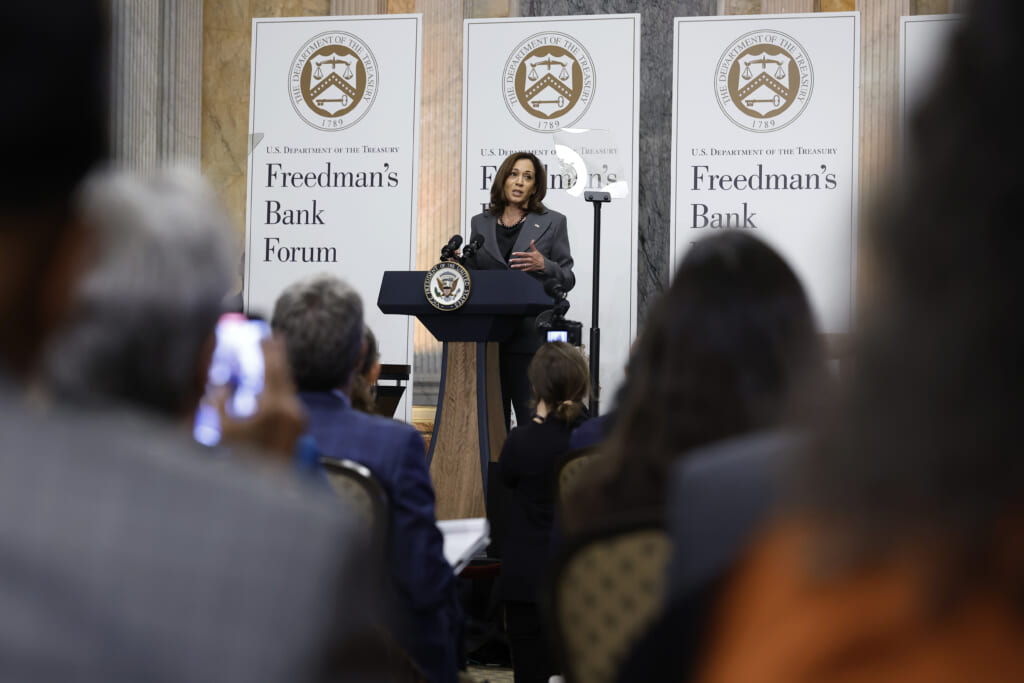
As part of its agenda to build and support Black-owned businesses, the Biden-Harris administration has announced billions of dollars for public-private investments in targeted communities. The administration notably tapped Vice President Kamala Harris to lead the charge on the administration’s announced commitments to support Black businesses. In July, Harris announced the Biden-Harris administration’s new private-public program, the Economic Opportunity Coalition, to align tens of billions of dollars in investments in underserved communities.
According to the White House, the administration has recently secured $1 billion in loans to Black-owned small businesses. While speaking at this year’s annual Freedman’s Bank Forum, Vice President Harris illustrated the importance of targeted investments in Black businesses, citing that “Black entrepreneurs are three times more likely to report they did not apply for a loan for fear of being turned away by a bank.” She added, “President Biden and I know that for our nation to succeed, these disparities must be spoken of, acknowledged, and addressed.”
Executive order on police reform
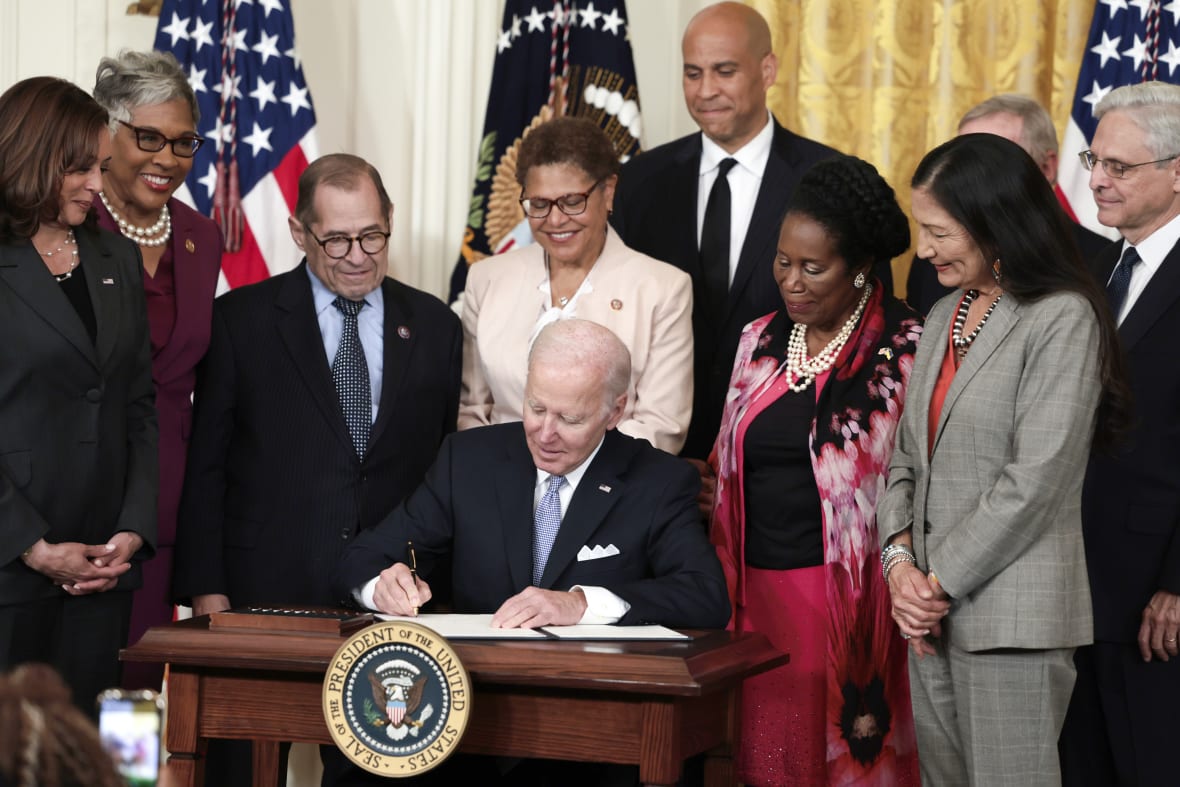
On the second anniversary of George Floyd’s murder, President Biden signed an executive order to advance “effective, accountable policing” after the U.S. Congress failed to pass the George Floyd Justice in Policing, as urged by Biden. Floyd’s murder in Minneapolis and the nationwide protests against racialized police violence arguably galvanized Black voters in the 2020 presidential election, ultimately electing Biden to office.
While the order does not go as far as a law passed by Congress would have, President Biden banned federal law enforcement agencies from the use of chokeholds and called for better standards for executing search warrants and investigating police departments, and other measures like better training for use-of-force standards and being more transparent with data from law enforcement agencies (including updating a national database).
As theGrio previously reported, the 28 or so components of the police reform order will directly impact over 100,000 federal law enforcement officers and hope to establish federal law enforcement as a national role model for state and local law enforcement agencies across the country.
Student debt cancellation
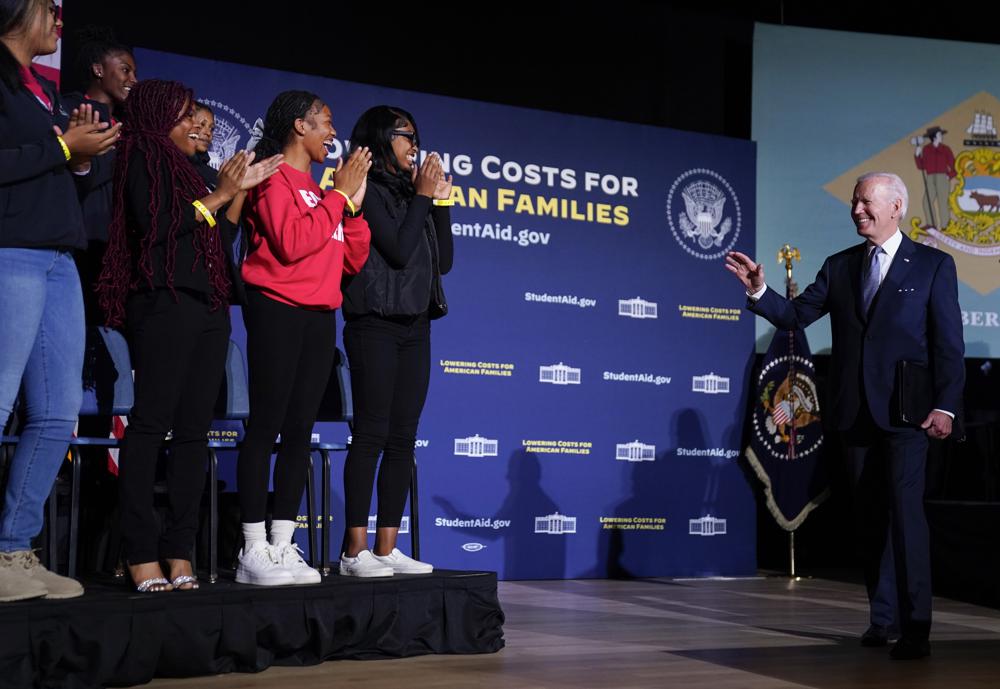
While President Biden’s much-anticipated student debt cancellation plan is currently held up in the federal court system, the forgiveness program, which cancels up to $10,000 per borrower making under $125,000, was rolled out with a targeted focus on Black student loan borrowers. Upon announcing the program, the Biden administration noted that the burden of student debt falls disproportionately on Black borrowers.
According to one analysis by the White House, Black borrowers still owe 95% of their original student loan debt 20 years after taking on the debt. Additionally, the program provides an additional $10,000 in forgiveness for Pell Grant recipients. Black borrowers are more likely to be Pell Grant recipients. A White House official previously projected that even before applying the additional $10,000 in debt forgiveness for Pell Grant recipients, the typical Black borrower would “see their balance cut nearly in half, and more than one in four Black borrowers will see their balance forgiven altogether.”
Emmett Till Antilynching Act
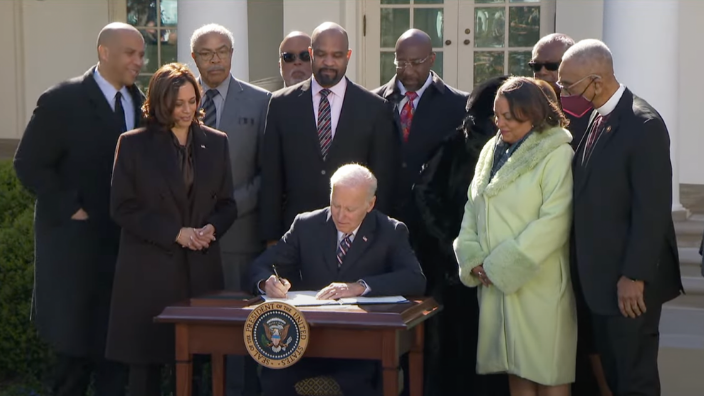
In March, President Biden signed into law the first anti-lynching bill in United States history. The law is named after Emmett Till, a 14-year-old Black boy from Chicago who was lynched in Money, Mississippi, while visiting family. The teen was kidnapped from his home by a mob of white men who beat, shot and drowned him for allegedly flirting with a white woman. The woman at the center of the accusation of Till, Carolyn Bryant Donham, would admit she lied decades later.
“Lynching was pure terror to enforce the lie that not everyone belongs in America, not everyone is created equal,” said President Biden in his remarks after signing the historic bill into law. “Terror to systematically undermine hard-fought civil rights…not just in the dark night but in broad daylight, innocent men, women and children, hung by nooses from trees, bodies burned and drowned and castrated.”
Biden also acknowledged that the law “is not just about the past,” declaring, “It’s about the present and our future as well. From the bullets in the back of Ahmaud Arbery to countless other acts of violence, countless victims known and unknown.”
Inflation Reduction Act
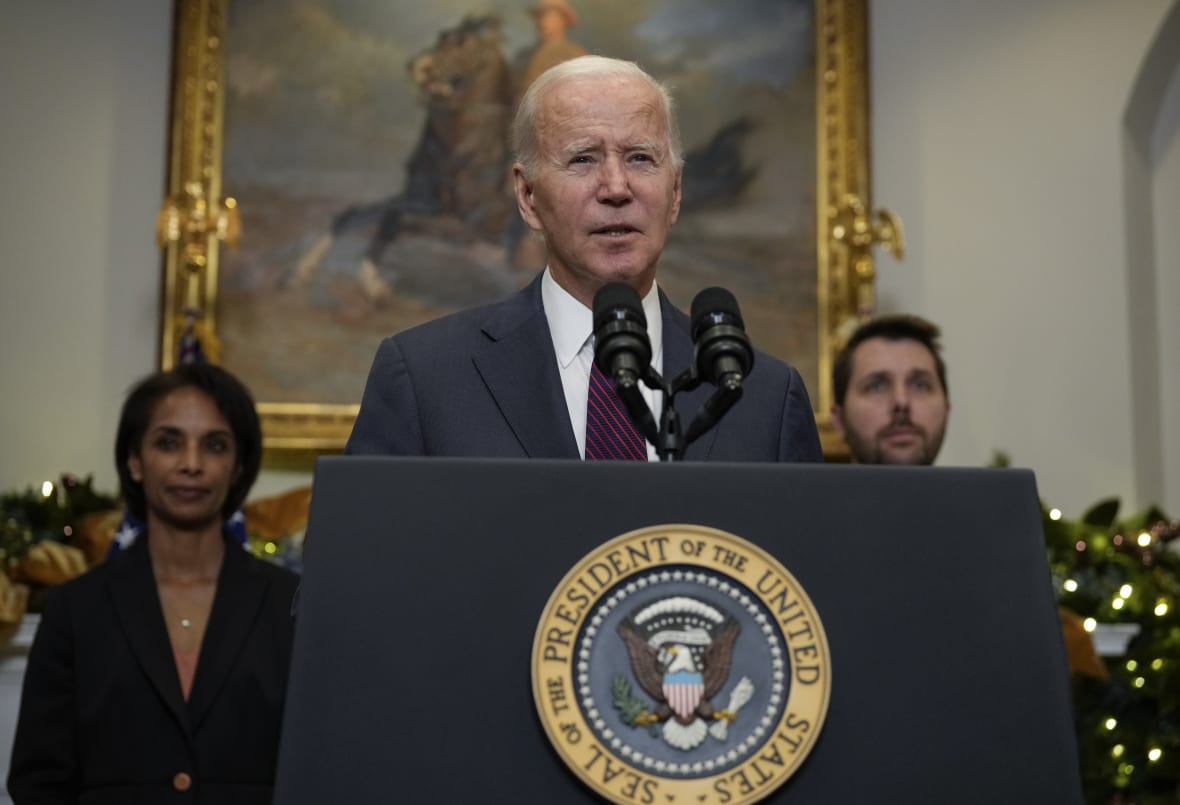
In August, President Biden signed the Inflation Reduction Act into law, which provides billions of dollars in investments geared toward battling inflation and combating economic issues, including energy and health costs. Through the Biden-Harris administration’s Justice40 initiative — which commits at least 40% of certain federal investments in Black and underserved communities — and other provisions in the IRA, Black households could see thousands of dollars saved per year.
The White House projects that households can save up to 30% with tax credits for home construction projects and could see their future utility bills lowered by at least $350 per year. According to the Biden-Harris administration, families taking advantage of the clean energy tax credits could save more than $1,000 per year. The IRA also provides debt relief for American farmers. The law features $3.1 billion to be allocated to “distressed borrowers” and another $2.2 billion to farmers who have “experienced discrimination,” yet removes race as a criterion for eligibility due to a pending lawsuit over a previous attempt to provide debt relief to Black farmers.
Noting the court battle that stopped the debt relief program for Black farmers, Cecilia Rouse, chair of the White House Council of Economic Advisors, previously told theGrio that despite the setback, the administration sees the provisions in the IRA as “a step forward.”
“It’s not as far as we want it to go, but it does bring some resources that we believe will survive and provide some resources to Black farmers,” she added. “The administration very much understands the plight of Black farmers and very much wants to be able to fulfill the requirements for addressing years of discrimination, but we face challenges in doing so. We view this as an accomplishment. It’s a positive step forward, recognizing that it doesn’t hold all the way.”
TheGrio is FREE on your TV via Apple TV, Amazon Fire, Roku and Android TV. Also, please download theGrio mobile apps today!

